- Home
- Scott Mariani
The Rebel's Revenge
The Rebel's Revenge Read online
SCOTT MARIANI
The Rebel’s Revenge
Copyright
Published by Avon an imprint of
HarperCollinsPublishers
1 London Bridge Street,
London SE1 9GF
www.harpercollins.co.uk
First published in Great Britain by HarperCollinsPublishers 2018
Copyright © Scott Mariani 2018
Cover photograph, Louisiana Background © Denis Tangney Jr / Getty Images
Cover photograph, Figure © Henry Steadman
Cover design by Henry Steadman 2018
Scott Mariani asserts the moral right to be identified as the author of this work.
A catalogue copy of this book is available from the British Library.
This novel is entirely a work of fiction. The names, characters and incidents portrayed in it are the work of the author’s imagination. Any resemblance to actual persons, living or dead, events or localities is entirely coincidental.
All rights reserved under International and Pan-American Copyright Conventions. By payment of the required fees, you have been granted the non-exclusive, non-transferable right to access and read the text of this e-book on screen. No part of this text may be reproduced, transmitted, down-loaded, decompiled, reverse engineered, or stored in or introduced into any information storage and retrieval system, in any form or by any means, whether electronic or mechanical, now known or hereinafter invented, without the express written permission of HarperCollins.
Source ISBN: 9780008235925
Ebook Edition © May 2018 ISBN: 9780008235932
Version 2018-09-20
Join the army of fans who LOVE Scott Mariani’s Ben Hope series …
‘Deadly conspiracies, bone-crunching action and a tormented hero with a heart … Scott Mariani packs a real punch’
Andy McDermott, bestselling author of The Revelation Code
‘Slick, serpentine, sharp, and very very entertaining. If you’ve got a pulse, you’ll love Scott Mariani; if you haven’t, then maybe you crossed Ben Hope’
Simon Toyne, bestselling author of the Sanctus series
‘Scott Mariani’s latest page-turning rollercoaster of a thriller takes the sort of conspiracy theory that made Dan Brown’s The Da Vinci Code an international hit, and gives it an injection of steroids … [Mariani] is a master of edge-of-the-seat suspense. A genuinely gripping thriller that holds the attention of its readers from the first page to the last’
Shots Magazine
‘You know you are rooting for the guy when he does something so cool you do a mental fist punch in the air and have to bite the inside of your mouth not to shout out “YES!” in case you get arrested on the train. Awesome thrilling stuff’
My Favourite Books
‘If you like Dan Brown you will like all of Scott Mariani’s work – but you will like it better. This guy knows exactly how to bait his hook, cast his line and reel you in, nice and slow. The heart-stopping pace and clever, cunning, joyfully serpentine tale will have you frantic to reach the end, but reluctant to finish such a blindingly good read’
The Bookbag
‘[The Cassandra Sanction] is a wonderful action-loaded thriller with a witty and lovely lead in Ben Hope … I am well and truly hooked!’
Northern Crime Reviews
‘Mariani is tipped for the top’
The Bookseller
‘Authentic settings, non-stop action, backstabbing villains and rough justice – this book delivers. It’s a romp of a read, each page like a tasty treat. Enjoy!’
Steve Berry, New York Times bestselling author
‘I love the adrenalin rush that you get when reading a Ben Hope story … The Martyr’s Curse is an action-packed read, relentless in its pace. Scott Mariani goes from strength to strength!’
Book Addict Shaun
‘Scott Mariani seems to be like a fine red wine that gets better with maturity!’
Bestselling Crime Thrillers.com
‘Mariani’s novels have consistently delivered on fast-paced action and The Armada Legacy is no different. Short chapters and never-ending twists mean that you can’t put the book down, and the high stakes of the plot make it as brilliant to read as all the previous novels in the series’
Female First
‘Scott Mariani is an awesome writer’
Chris Kuzneski, bestselling author of The Hunters
Table of Contents
Cover
Title Page
Copyright
Praise
Prologue
Chapter 1
Chapter 2
Chapter 3
Chapter 4
Chapter 5
Chapter 6
Chapter 7
Chapter 8
Chapter 9
Chapter 10
Chapter 11
Chapter 12
Chapter 13
Chapter 14
Chapter 15
Chapter 16
Chapter 17
Chapter 18
Chapter 19
Chapter 20
Chapter 21
Chapter 22
Chapter 23
Chapter 24
Chapter 25
Chapter 26
Chapter 27
Chapter 28
Chapter 29
Chapter 30
Chapter 31
Chapter 32
Chapter 33
Chapter 34
Chapter 35
Chapter 36
Chapter 37
Chapter 38
Chapter 39
Chapter 40
Chapter 41
Chapter 42
Chapter 43
Chapter 44
Chapter 45
Chapter 46
Chapter 47
Chapter 48
Chapter 49
Chapter 50
Chapter 51
Chapter 52
Chapter 53
Chapter 54
Chapter 55
Chapter 56
Chapter 57
Chapter 58
Chapter 59
Chapter 60
Chapter 61
Chapter 62
Chapter 63
Chapter 64
Chapter 65
Chapter 66
Chapter 67
Chapter 68
Keep Reading …
About the Author
By the Same Author
About the Publisher
PROLOGUE
Louisiana, May 1864
Built in the Greek Revival style, encircled by twenty-four noble Doric columns and standing proud amid a vast acreage of plantation estate, the mansion was one of the grandest and most aristocratic homes in all of the South. Its dozens of reception rooms, not to mention the splendid ballroom, had hosted some of Clovis Parish’s most celebrated social events of the forty years since its construction, positioning Athenian Oaks, as the property was named, at the very centre of the region’s high society.
On this day, however, the stately house was silent and virtually empty. Deep within its labyrinthine corridors, a very secret and important meeting was taking place. A meeting that its attendees knew very well could help to swing in their favour the outcome of the civil war that had been tearing the states of both North and South apart for three long, bloody years.
Of the four men seated around the table in the richly appointed dining room, only one was not wearing military uniform: for the good reason that he wasn’t an officer of the Confederate States Army but, rather, the civilian owner of Athenian Oaks.
His name was Leonidas Wilbanks Garrett. A Texan by birth, he had risen to become one of the wealthiest landowners in Louisiana by the time he
was forty. Now, fifteen years on, the size of his fortune and spread of his cotton plantation were second to none. As was the workforce of slaves he owned, who occupied an entire village of filthy and squalid huts far out of sight of the mansion’s windows.
But it was by virtue of L.W. Garrett’s renown as a physician and scientist, rather than his acumen for commerce, that the three high-ranking Confederate officers had made the journey to Clovis Parish to consult him. For this special occasion they were majestically decked out in full dress uniform, gleaming with gold braid. The most senior man present wore the insignia of a general of the C.S.A. He had lost an eye at the Second Battle of Bull Run and wore a patch over his scarred socket. He had also lost all three of his sons during the course of the conflict, and feared that he would have lost them for nothing if the Yankees prevailed.
A bitter outcome which, at this point in time, it seemed nothing could prevent. Since the crushing defeat at Chattanooga late the previous year and the subsequent appointment of Ulysses S. Grant as General-in-Chief of the Union forces, the turning point seemed to have come. Rout after rout; the tattered and depleted army of the South was in danger of being completely overrun.
‘Gentlemen, we stand to lose this damn war,’ the general said in between puffs of his cigar. ‘And lose it we will, unless saved by a miracle.’
‘Desperate times call for desperate measures,’ said the second officer, who was knocking back the wine as fast as it could be served. He was a younger man, a senior colonel known for his fiery temperament both on and off the battlefield. The last cavalry charge he had personally led had resulted in him having his right arm blown off by a cannonball. It had been found two hundred yards away, his dead hand still clutching his sabre. He now wore the empty sleeve of his grey tunic pinned across his chest, after the fashion of Lord Nelson.
‘Indeed they do,’ the general agreed. ‘And if that yellowbelly Jeff Davis and his lapdog Lee don’t have the guts to do what’s necessary to win this war, then by God someone else must step in and do it for them.’
This provoked a certain ripple of consternation around the table, as it was somewhat shocking to refer to the President of the Confederate States of America, not to mention the revered General Robert E. Lee, hero of the South, in such harsh language. But nobody protested. The facts of the matter were plain. The dreadful prospect of a Union victory was looming large on the horizon. Leonidas Garrett, whose business empire stood to be devastated if a victorious Abraham Lincoln acted on his promise to liberate all slaves in North America, dreaded it as much as anyone.
After another toke on his cigar and a quaff of wine, the general leaned towards Garrett and fixed him with his one steely eye. ‘Mr Garrett, how certain are you that this bold scheme of yours can work?’
‘If it can be pulled off, which I believe it can, then my certainty is absolute,’ Garrett replied coolly.
The third senior officer was the only conspirator present at the top-secret gathering who was yet to be fully convinced of Garrett’s plan. ‘Gentlemen, I must confess to having great misgivings about the enormity of what we are contemplating. Satan himself could scarcely have devised such wickedness.’
The general shot him a ferocious glare. ‘At a time like this, if it took Beelzebub himself to lead the South to victory, I would gladly give him the job.’
The objector made no reply. The general stared at him a while longer, then asked, ‘Are you with us or not?’
‘You know I am.’ No sir, no display of deference to a man of far superior rank. Because rank was not an issue at a meeting so clandestine, so illicit, that any and all of them could have been court-martialled and executed by their own side for taking part. What they were envisaging was in flagrant contravention of the rules of war and gentlemanly conduct.
Silence around the table for a few moments. The dissenter said, ‘Still, a damned ugly piece of work.’
‘I’m more interested in knowing if we can make it work,’ said the one-armed colonel.
‘It isn’t a new idea, by any measure,’ Garrett said. ‘Such tactics, though brutal, have been used in warfare throughout history. Trust me, gentlemen. We have the means to make it work, and if successful its effect on the enemy will be catastrophic. It will bring the North to its knees, cripple their infrastructure and force those Yankee scumbellies to surrender within a month. But I must reiterate,’ he added, casting a solemn warning look around the table, ‘that not a single word of this discussion can ever be repeated to anyone outside of this room. Not anyone, is that perfectly clear?’
Throughout the meeting, a young female negro servant dressed in a maid’s outfit had been silently hovering in the background, watching the levels in their wine glasses and meekly stepping up to the table now and then to top them up from a Venetian crystal decanter. Nobody acknowledged her presence in the room, least of all her legal owner, Garrett. As far as he was concerned she might simply have been a well-trained dog, rather than a human being. A dog, moreover, that could be whipped, chained up to starve, or used as target practice without compunction or accountability at any time, just for the hell of it.
Like Garrett, none of the three Southern-born officers gave an instant’s thought to the possibility that this young slave girl could be absorbing every single word of their discussion. And that she could remember it perfectly, so perfectly that it could later be repeated verbatim. Nor did any man present have any notion as to who the negro servant woman really was. Her role in the downfall of their plan was a part yet to be played. Just how devastating a part, none of them could yet know either.
‘So, gentlemen, we’re agreed,’ the general said after they’d spent some more time discussing the particulars of Garrett’s radical scheme. ‘Let’s set this thing in motion and reclaim the South’s fortunes in this war.’ He raised his glass. ‘To victory!’
‘To victory!’ The toast echoed around the table. They clinked glasses and drank.
Her duty done, the slave humbly asked for permission to excuse herself and was dismissed with a cursory wave, whereupon she slipped from the room to attend to the rest of her daily chores. Though if any of them had paid her the least bit of heed, they might have wondered at the enigmatic little smile that curled her lips as she walked away.
Chapter 1
Ben Hope had often had the feeling that trouble had a knack of following him around. No matter what, where or how, it dogged his steps and stuck to him like a shadow. If trouble were a person, he’d have felt justified in thinking that individual was stalking him. If he’d been of a superstitious bent he could have thought he was haunted by it, as by a ghost. Whatever the case, it seemed as if at every juncture of his life, wherever he went and however he tried to steer out of its path, there it was waiting for him.
And it was here, pushing midnight on one sultry and thus-far uneventful September evening in the unlikely setting of a tiny backstreet liquor store in Clovis Parish, Louisiana, that he was about to make trouble’s acquaintance yet one more time.
If the most recent round of airport security regulations hadn’t made it more bother than it was worth to carry his old faithful hip flask across the Atlantic among his hand luggage, and if the bar and grill where he’d spent most of that evening had stocked the right kind of whisky to satisfy one of those late-night hankerings for a dram or three of the good stuff that occasionally come over a man, then two things wouldn’t have happened that night. First, there would have been nobody else around to prevent an innocent man from getting badly hurt, most probably shot to death.
Which was a good thing. And second, Ben wouldn’t have been plunged into a whole new kind of mess, even for him.
Which was less of a good thing. But that’s what happens when you have a talent for trouble. He should have been used to it by now.
It was nine minutes to midnight when Ben walked into the liquor store. It was as warm and humid inside as it was outside, with a lazy ceiling fan doing little more than stir the thick air around. An unseen rad
io was blaring country music, a stomping up-tempo bluegrass instrumental that was alive with fiddles and banjos and loud enough to hear from half a block away.
The sign on the door said they were open till 2 a.m. Ben soon saw he was the only customer in the place, which didn’t surprise him given the lateness of the hour and the emptiness of the street. Maybe they got a rush of business just before closing time.
The entire store could have fitted inside Ben’s farmhouse kitchen back home in Normandy, but was crammed from floor to ceiling across four aisles with enough booze to float a battleship. A glance up and down the heaving displays revealed a bewildering proliferation of beer and bourbon varieties, lots of rum, a smattering of local Muscadine wines and possibly not much else. He was resigned to not finding what he was looking for, but it had to be worth a shot.
Alone behind the counter sat an old guy in a frayed check shirt and a John Deere cap, with crêpey skin and lank grey hair, who was so absorbed in the pages of the fishing magazine he was reading that he didn’t seem to have noticed Ben come in.
‘How’re they biting?’ Ben said with a smile over the blare of the music, pointing at the magazine. The friendly traveller making conversation with the locals.

 Valley of Death
Valley of Death House of War
House of War The Pandemic Plot
The Pandemic Plot The Pretender's Gold
The Pretender's Gold The Demon Club
The Demon Club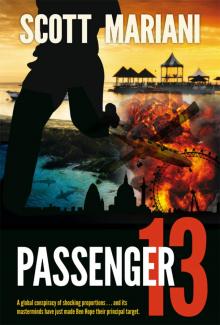 Passenger 13 (Ben Hope eBook originals)
Passenger 13 (Ben Hope eBook originals)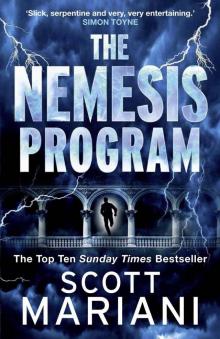 The Nemesis Program_Ben Hope
The Nemesis Program_Ben Hope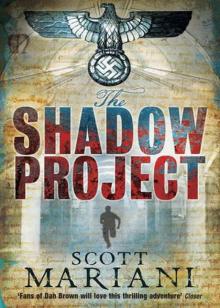 The Shadow Project
The Shadow Project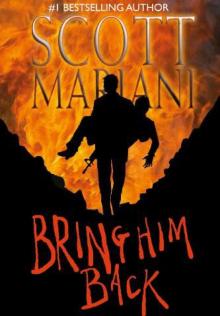 Bring Him Back
Bring Him Back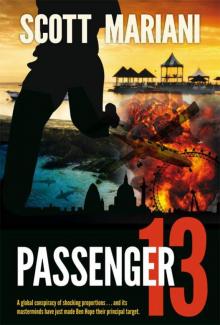 Passenger 13
Passenger 13 Sacred Sword (Ben Hope 7)
Sacred Sword (Ben Hope 7)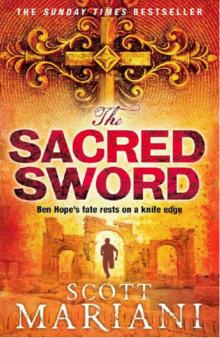 The Sacred Sword (Ben Hope 7)
The Sacred Sword (Ben Hope 7)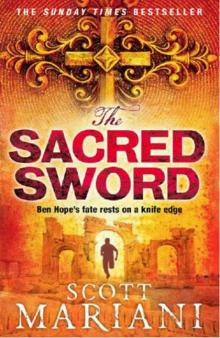 Sacred Sword
Sacred Sword The Babylon Idol
The Babylon Idol The Armada Legacy
The Armada Legacy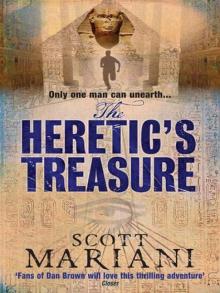 The Heretic's Treasure
The Heretic's Treasure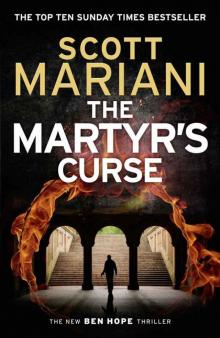 The Martyr’s Curse
The Martyr’s Curse DECOY (Kindle Single)
DECOY (Kindle Single) The Bach Manuscript
The Bach Manuscript The Alchemist's Secret
The Alchemist's Secret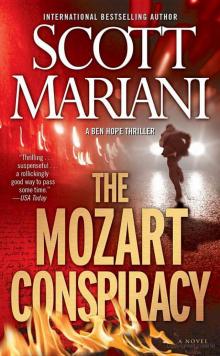 The Mozart Conspiracy: A Novel bh-2
The Mozart Conspiracy: A Novel bh-2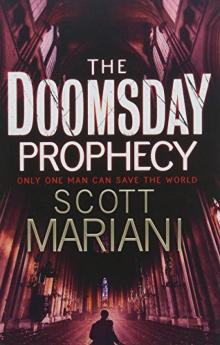 The Doomsday Prophecy
The Doomsday Prophecy The Ben Hope Collection: 6 BOOK SET
The Ben Hope Collection: 6 BOOK SET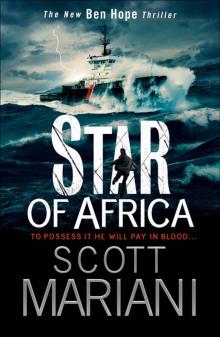 Star of Africa (Ben Hope, Book 13)
Star of Africa (Ben Hope, Book 13)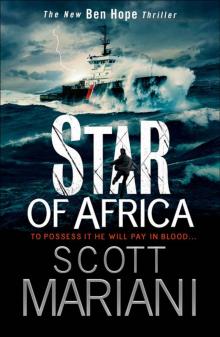 Star of Africa
Star of Africa The Forgotten Holocaust (Ben Hope, Book 10)
The Forgotten Holocaust (Ben Hope, Book 10) The Devil's Kingdom
The Devil's Kingdom The Lost Relic
The Lost Relic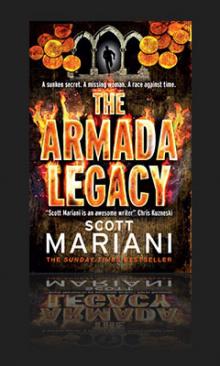 The Armada Legacy bh-8
The Armada Legacy bh-8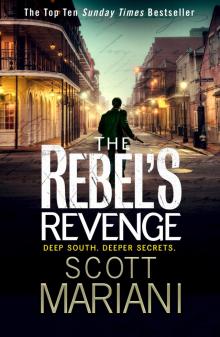 The Rebel's Revenge
The Rebel's Revenge The Forgotten Holocaust
The Forgotten Holocaust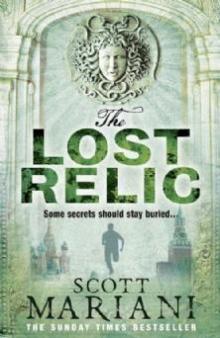 The Lost Relic bh-6
The Lost Relic bh-6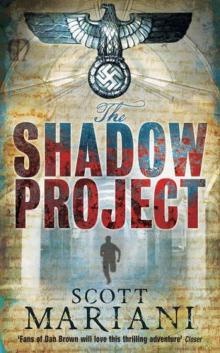 Ben Hope 05 - The Shadow Project
Ben Hope 05 - The Shadow Project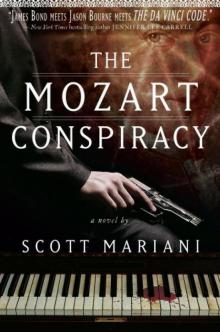 The Mozart Conspiracy
The Mozart Conspiracy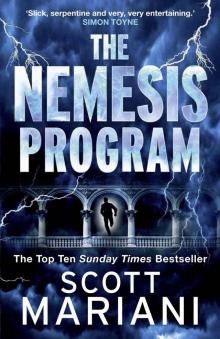 The Nemesis Program
The Nemesis Program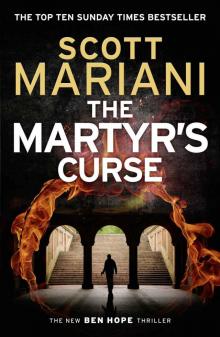 The Martyr’s Curse (Ben Hope, Book 11)
The Martyr’s Curse (Ben Hope, Book 11) THE TUNNEL: A Ben Hope Story
THE TUNNEL: A Ben Hope Story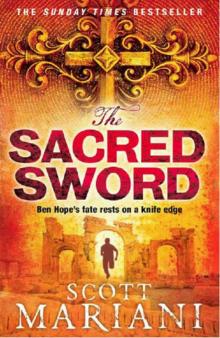 The Sacred Sword bh-7
The Sacred Sword bh-7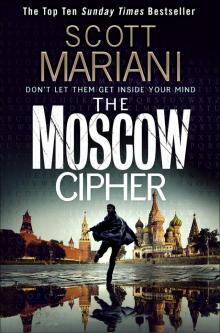 The Moscow Cipher
The Moscow Cipher The Shadow Project bh-5
The Shadow Project bh-5 The Tunnel
The Tunnel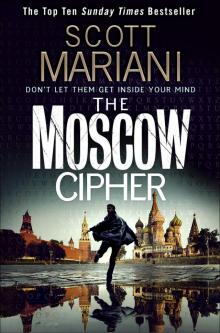 The Moscow Cipher (Ben Hope, Book 17)
The Moscow Cipher (Ben Hope, Book 17)